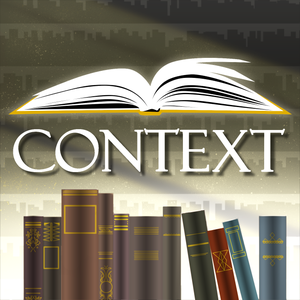
Context with Brad Harris
Brad Harris, Historian
- 18 minutes 31 secondsInto the Trenches Once More
If you like this stuff and you'd like to hear more, please support my work on patreon: https://www.patreon.com/bradcoleharris
17 May 2023, 3:24 pm - 31 minutes 41 secondsUrban Versus Rural
There’s a lot that’s dividing Americans right now - lots of divisive narratives that have captivated lots of people. One of those narratives features the apparent widening political divide between urban and rural culture. But, the truth is that the evolution of America’s urban and rural communities has always been symbiotic.
One of the best historical case studies of that symbiosis highlights the city of Chicago and the rural American west, documented by William Cronon in his award-winning book, Nature’s Metropolis: Chicago and the Great West, published in 1991. In this episode, we reconsider the relationship between urban and rural in light of that history.
To help support Context and access bonus content, join me on Patreon.
Learn more on my website.
1 June 2021, 9:00 am - 22 minutes 30 secondsNotes On Tribalism
"Notes on Nationalism" was an essay written by George Orwell in 1945, just as World War II was ending. It caused quite a stir at the time, but most people these days have never heard of it. Nonetheless, "Notes on Nationalism" remains one of the most powerful examples of Orwell's timeless insight into human nature; in this case, focused on our instinct to gang up on each other, our instinct for tribalism.
Orwell never used the term "tribalism" himself -- he wrote this essay a generation before that term became widespread. However, I suspect his essay was a primary factor in raising awareness of the social pathology of tribalism, and his diagnosis of the problem precisely captures the liabilities of tribalism plaguing us today.
To help support Context and access bonus episodes, join me on Patreon.
Learn more at bradharris.com
26 April 2021, 8:30 am - 38 minutes 21 secondsThe Fate of Universities
Like many others, I’ve begun to worry about the fate of higher education in American society.
Having spent most of my professional life in academia, my instinct is to regard the university system as sacred - as Wisdom’s Workshop, to borrow the historian James Axtell’s recent book title.
Liberal democracy relies on a very well educated citizenry. And, modern civilization more generally relies on a significant number of us possessing hard-earned historical perspective on what is true and what is good, and hard-earned scientific perspective on the full reach of human potential.
Any threat to the university system should worry us. Today, there appear to be multiple, and the most frustrating thing of it is... those threats seem to be mostly self-imposed.
In this episode, I highlight those threats and explore the history behind the legacy of modern knowledge.
To help support my work and access bonus episodes, visit patreon.com/bradcoleharris
Learn more at bradharris.com
24 February 2021, 10:00 am - 1 hour 1 minuteExplaining Postmodernism: A Conversation with Stephen Hicks
In this episode, I invited the philosopher and author Stephen Hicks on the podcast to chat about his book, Explaining Postmodernism. Stephen has been a Professor of Philosophy at Rockford University in Illinois for nearly 20 years, and he's published widely on the history of philosophy, ethics, and politics.
The reason I invited Stephen on the show is because I think postmodernism planted the seeds of the illiberalism that's erupting throughout our society today, and Stephen Hicks literally wrote the book on that development. In my opinion, his insight is critical because the battle of ideas postmodern thinking provokes could very well determine the fate of liberal democracy our lifetime.
To learn more about Stephen Hicks, I encourage you to visit his website, stephenhicks.org, or follow him on Twitter.
To help support Context and access bonus episodes, visit https://www.patreon.com/context
Learn more at https://bradharris.com
25 January 2021, 10:00 am - 33 minutes 49 secondsEscaping the Cycle of History
What’s that line attributed to Mark Twain?...
"History does not repeat itself, but it often rhymes."
As the authors Neil Howe and William Strauss wrote in their best-selling book The Fourth Turning: An American Prophecy - What the Cycles of History Tell Us About America’s Next Rendezvous with Destiny, published in 1997, “The reward of the historian is to locate patterns that recur over time and to discover the natural rhythms of social experience.”
According to the pattern they predicted, we should currently be in the midst of a great historical crisis. Are we? If so, what happens next?
To help support Context and access supporter-only episodes, head to patreon.com/context
For more information visit bradharris.com
21 December 2020, 10:00 am - 39 minutes 52 secondsReflections from A Distant Mirror
Plague, political upheaval, the looming prospect of another civil war... what century are we in?
To retain historical perspective, and to find inspiration in how humanity has recovered from far greater upheavals in the past, we turn to Barbara Tuchman's classic work, A Distant Mirror: The Calamitous 14th Century.
What we find in the late Middle Ages is a vision of hell, along with overwhelming evidence that the best of humanity can endure the worst.
To help support Context and access supporter-only episodes, head to patreon.com/context
For more information visit bradharris.com
26 October 2020, 9:00 am - 26 minutes 45 seconds2+2=5
I went slightly mad producing this episode. But then, the line between our reality and the fiction of 1984 has become far too blurry for my comfort.
George Orwell wrote 1984 in 1948 - a very different historical context with very different threats. And yet, the dark sides of human nature he explored through his novel are still very much with us today. He saw with his own eyes, as did everyone else who lived through the World Wars and totalitarian genocides back then, where the worst of human nature can lead if left unchecked.
Context is now entirely listener-supported. If you think these ideas are important and you'd like to help spread them, sign up at https://www.patreon.com/context
Learn more at https://bradharris.com
14 September 2020, 8:00 am - 30 minutes 36 secondsAll Things Being Equal
"Those who forget history are doomed to repeat it."
Lately, it seems like our society is attempting to replace truth with power, forgetting that all other societies that have done this have failed miserably.
One of the worst features of our society, we are told, is wealth inequality. But, what is the historical truth about wealth inequality?
Drawing inspiration from Walter Scheidel's book, The Great Leveler: Violence and the History of Inequality, we explore the history of wealth inequality and discuss how the cure has tended to be far worse than the disease.
To support Context and access bonus episodes, join me on Patreon: https://www.patreon.com/context
Learn more at https://bradharris.com
25 August 2020, 9:30 am - 20 minutes 58 secondsApproximating Perfection
It's hard to remember how intelligent humanity can be when we are relentlessly bombarded by bad news. Author and mathematician Steven Strogatz helps to remind us with his recent book, Infinite Powers: How Calculus Reveals the Secrets of the Universe.
The history of calculus may seem irrelevant to most of our going concerns, but as Strogatz shows, the spirit of calculus expresses one of the best ideas humanity has ever had: greatness is not to be found in the end, but in the effort.
Support the show on https://www.patreon.com/context
Learn more at https://bradharris.com
8 July 2020, 9:00 am - 20 minutes 53 secondsScience as a Candle in the Dark
Carl Sagan was a brilliant popularizer of science. His book, The Demon Haunted World: Science as a Candle in the Dark, helps to inspire clear thinking when chaos reigns supreme. Here, I share my thoughts on the important themes of that work.
To access bonus episodes and all regular episodes ad-free, join me on Patreon at https://www.patreon.com/context
Learn more at https://bradharris.com
5 June 2020, 9:00 am - More Episodes? Get the App
Your feedback is valuable to us. Should you encounter any bugs, glitches, lack of functionality or other problems, please email us on [email protected] or join Moon.FM Telegram Group where you can talk directly to the dev team who are happy to answer any queries.
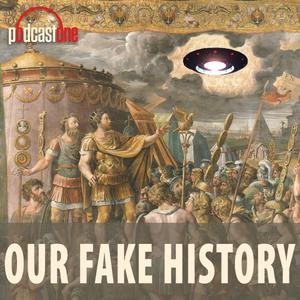 Our Fake History
Our Fake History
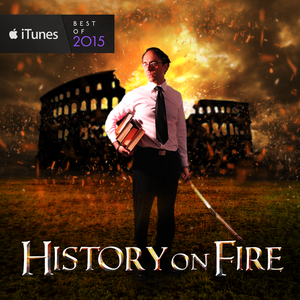 History on Fire
History on Fire
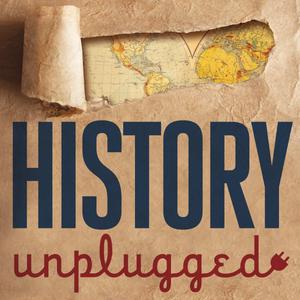 History Unplugged Podcast
History Unplugged Podcast
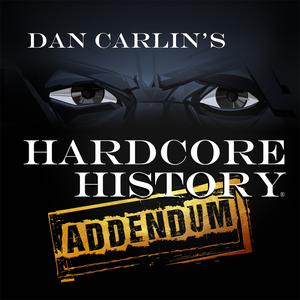 Dan Carlin's Hardcore History: Addendum
Dan Carlin's Hardcore History: Addendum
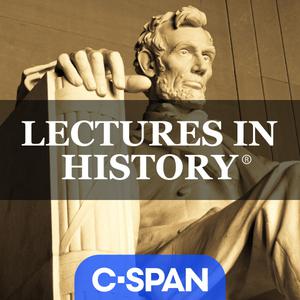 Lectures in History
Lectures in History
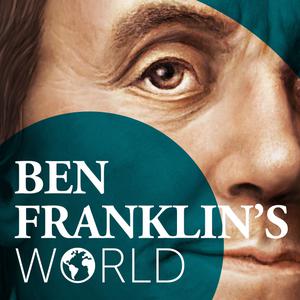 Ben Franklin's World
Ben Franklin's World